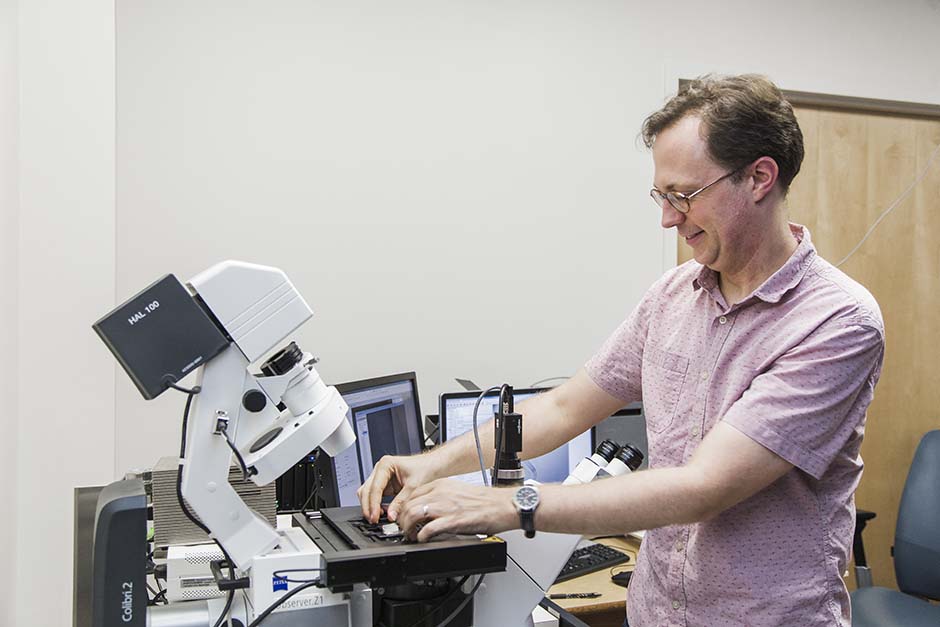Pair some microscopic, translucent worms—known as Caenorhabditis
Lead by Assistant Professor Kevin Collins, a biologist in the College of Arts and Sciences, the grant is helping to further his research on how mating and reproductive habits trigger various neuro-sensory processes in the microscopic lifeforms.
“The added bonus about the NSF grant is that I’m able to teach a course, so I’m proposing a new upper-level molecular genetics course where the students will be doing work on this mating and mechanical activation project with the C.
Collins is passionate about studying these tiny worms that only grow to just one millimeter in length. His previous research studied how the nematode worm’s simplest neural circuit, the egg-laying behavior circuit, works and how it’s regulated by serotonin, a chemical neurotransmitter also found in humans and responsible for managing mood. Collins found the circuit has “command neurons” that release serotonin to increase movement in the worms and enable them to lay eggs.
A key question guiding his current research is what happens to female worms during the mating process. Collins is looking at which cell circuits are triggered during this process, and his research explores more specifically neuro-sensory feedback from the different reproductive stimuli within worm environments. Since worms have the same molecules that mechanically activate cells in humans, his research could give insight into how neurotransmitter signaling processes work in human beings.
The NSF CAREER award, which he received this semester, is a research and educational grant for $750,000 over a span of five years. An important requirement for this grant is developing new educational models with Associate Professor Debbiesiu Lee in the Department of Educational and Psychological Studies.
“The first part of this lab is didactic where the students will learn new techniques, and my hope is to use that to develop new tools for the whole worm community that will allow us to study new genes,” Collins says. “I’m excited because now instead of being limited by a few people in the lab, we can get a lot accomplished because of the student-directed research contributing to this project.”
The aim is to have a complete set of models created by the end of the five years, which would assist other scientists, and those in the making, to aid their research experiments on C.
The grant also funds graduate and undergraduate hands-on, research-focused learning. Collins hopes that student feedback will inform the development of additional molecular genetics labs that leverage the research activities of other biology faculty. Students will also have the opportunity to contribute to published research papers with Professor Collins.

